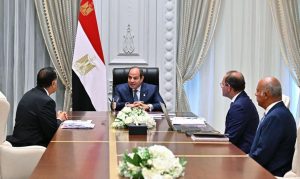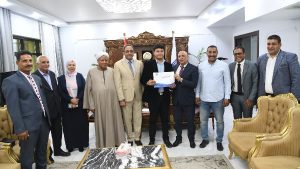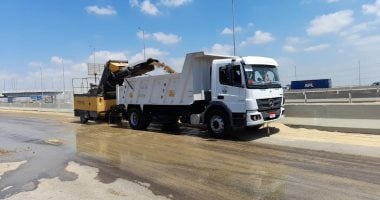Dakahlia Governorate continues its intensive efforts to develop the garbage and solid waste recycling system as part of the state’s plan to improve waste management and protect the environment, in cooperation with the Ministries of Local Development and Environment, and funded by international institutions such as the European Bank for Reconstruction and Development and the European Union.
Firstly: Establishment and development of plants
The governorate has established two new garbage recycling plants in the Sandoub and Manzala areas, in addition to developing and upgrading three existing plants in the Balqas, Sinbillawin, and Aga centers. Development work included enhancing production lines and adding new sorting and recycling lines.
Secondly: Increasing capacity
These projects contributed to raising the capacity from about 600 tons per day to more than 3,500 tons per day of waste, with total investments estimated at about 430 million Egyptian pounds.
Thirdly: Construction of an engineered sanitary landfill in Qalabsho
An engineered sanitary landfill was established in the Qalabsho area on an area of 50 acres, including 5 sanitary landfill cells, with an estimated cost of 50 million Egyptian pounds. The project aims at the safe disposal of solid waste and preventing environmental pollution.
Fourthly: Removal of random dumps
The governorate managed to remove more than 2 million tons of waste from 8 random dumps, and work is underway to remove 4 additional dumps with a total quantity of 202 thousand tons, at a cost exceeding 220 million Egyptian pounds.
Fifthly: International project on Kitchener axis
Within the Kitchener Drain development project, a contract was signed with the Arab Organization for Industrialization to establish a new waste recycling plant in Balqas center with a capacity of 600 tons per day, as part of a regional project including Kafr El Sheikh and Gharbia governorates, with funding of 38.8 million euros.
Sixthly: Social and economic impact
These projects resulted in providing more than 10,000 direct and indirect job opportunities, contributed to improving the urban environment, and raised citizens’ awareness of the importance of sorting and recycling waste.
With these steps, Dakahlia has become one of the most prominent Egyptian governorates in developing the infrastructure for garbage recycling, reflecting its commitment to transition towards a green economy and sustainable development.













Recommended for you
Talib Al-Rifai Chronicles Kuwaiti Art Heritage in "Doukhi.. Tasaseem Al-Saba"
Exhibition City Completes About 80% of Preparations for the Damascus International Fair Launch
Unified Admission Applications Start Tuesday with 640 Students to be Accepted in Medicine
Egypt Post: We Have Over 10 Million Customers in Savings Accounts and Offer Daily, Monthly, and Annual Returns
His Highness Sheikh Isa bin Salman bin Hamad Al Khalifa Receives the United States Ambassador to the Kingdom of Bahrain
Al-Jaghbeer: The Industrial Sector Leads Economic Growth